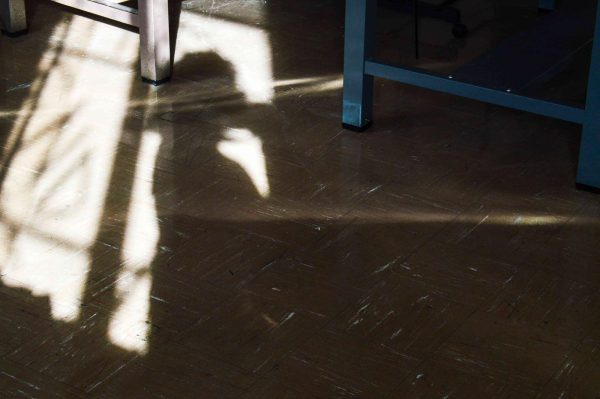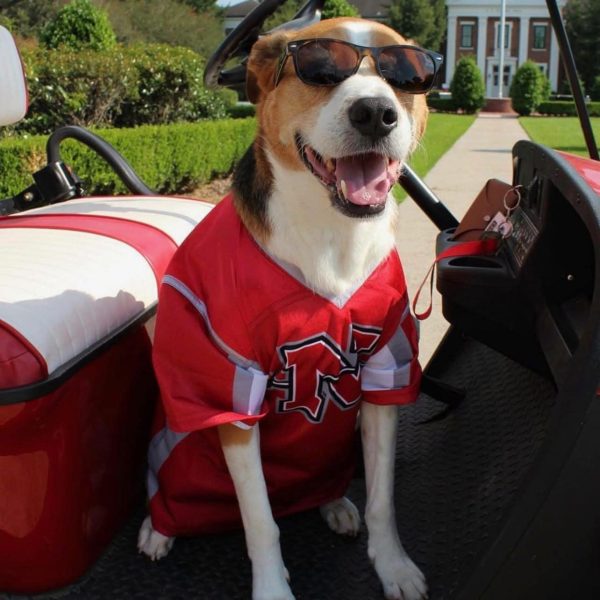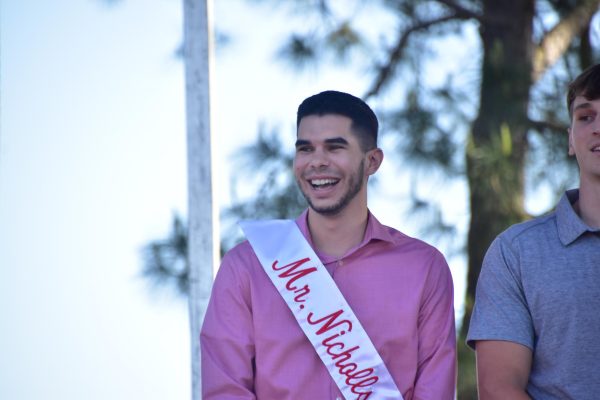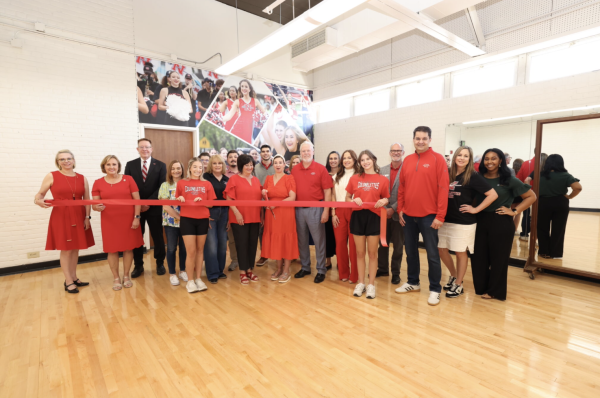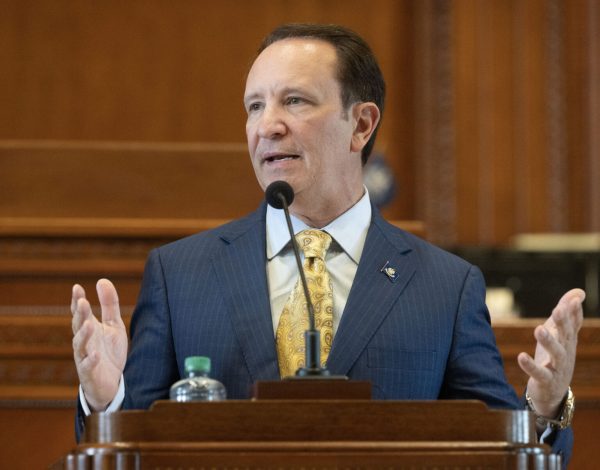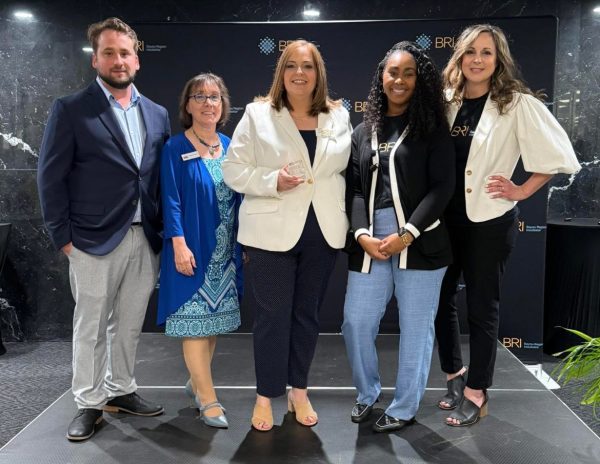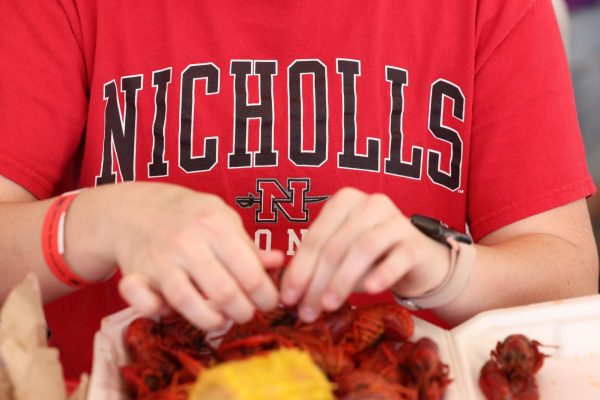Nicholls to offer credit for study abroad in France
Nicholls students are invited to participate in the Normandy Academy this summer from June 19 to June 30, 2015.
The ten-day study abroad program, in partnership with the National World War II Museum, is open to all students, and offers students the opportunity to acquire three credit hours in history.
“It initially started as a study abroad program for high school students, which has now expanded to include universities, and we work with them to offer college credit,” Paul Wilson, associate professor and department head of history and geography, said.
The program is in its fourth year, and this will be the third year Nicholls State University participates and offers college credit. The University of New Orleans was also a participant last year, but Nicholls is the first university to have contracted with the museum to offer college credit.
“Stephen Watson, who is the executive vice president and chief operating officer at the National World War II Museum, is a Nicholls graduate who initiated the discussion. Laynie Barrilleaux, former vice president of academic affairs, got involved, and the result is this study abroad program,” Wilson said.
There are no requirements to be involved, and not everyone who participates decides to get Nicholls credit. The program still includes high school students, and last year, a total of 35 students attended, nine from Nicholls and six from the University of New Orleans.
The program costs $3,695 per student, but there are scholarships available for participating Nicholls students. Those students interested should contact Wilson for more information.
Students will begin the trip in New Orleans, at the museum itself, where there is an orientation and introduction. For two days students use resources from the museum that covers the various aspects of WWII history and the various topics that will be discussed in France.
“There is a New Orleans component to begin the program, and then we fly out of New Orleans to Paris. Once in Paris, we do a bus tour of Paris and see some of the main sites. We then stop in a city called Bayeaux before catching the bus to Normandy. It’s a trip jam-packed with history and excitement, and students really enjoy the various excursions,” Wilson said
The final stretch of the trip occurs on the beaches, where students can learn and walk on the same beaches that were occupied by forces on D-Day.
“The American cemetery, just off of Omaha beach, is a crucial part of this experience where you really understand the meaning of sacrifice. Here, we sum up the D-Day experience of American soldiers. That’s a very powerful experience to have. It’s moving for students because we go back and we talk about what happened,” Wilson said.
Students are also propelled back in time to the events and decisions that led up to the events of D-Day, and through assignments, readings and forums, they can experience the role of a leader.
“We don’t just take them to sites and tell them what happened. We put students in the roles of actors in the Normandy tale in WWII. They have to assume the roles of leaders, and they have leader debates, where they discuss allied strategy. They have to engage in research and critical thinking to come up with the best answers,” Wilson said.
Although Wilson has been leading the trip the last two years of the program, Kurt Stiegler, assistant professor of history and geography, will be conducting the course this upcoming summer. Students participating for credit will be required to complete an online component of the course beginning in April 2016, where students are given readings and assignments to be submitted for grading.
“In the course, besides learning the historical events, we want them to understand the importance and legacy of WWII, and to evoke, through the tour, a sense of pilgrimage and commemoration, keeping in mind that these are places where tens of thousands of people died,” Stiegler said.
The program uniquely combines the aspect of a course and a study abroad experience, where students can take the lessons of history and apply them to today.
“We want students to be able to identify and make connections to leadership traits that were integral to Allied victory in WWII and are relevant to college career paths.
We hope that the students, through seminars and discussions, can learn to take command responsibility and be responsible. Be competent in your profession, and be proud of it. That’s training, that’s education,” Stiegler said.
From the context of D-Day, Stiegler wants students to learn the value of preparation as a means to success. “There’s a samurai saying I like to quote to my students. Expect nothing, but be prepared for anything,” Steigler said.
The course will teach students to “be firm and resolute in decisions, allowing for adjustments when necessary,” as well as encourage teamwork by “listening and seeking counsel from others.”
The Normandy Academy also teaches students the importance of humility by witnessing first hand the sacrifice of those before them.
“No one admires arrogance, so humility is essential. I also always tell my students: ‘It takes a smart man to know he’s stupid.’ That was a quote from the Barney Rubble of the Flinstones, but it’s one that can help you as you go through life,” Stiegler said.



